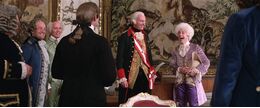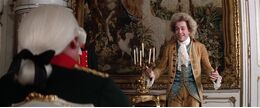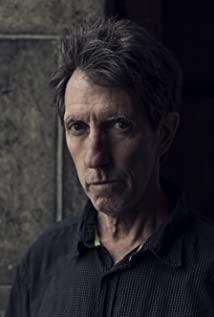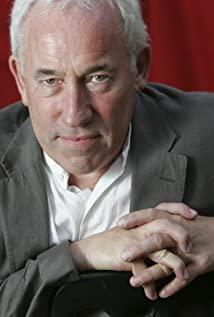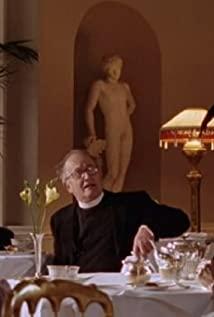This movie, which won 8 awards at the 54th Oscars, tells the brief but glorious life of Mozart, and it reproduces Mozart, a musical genius, through Salieri's perspective. I don't want to say too much about the movie itself. "Mozart" carries too many expectations and too many connotations. Today we mainly talk about the music in the movie.
There is almost no original music in the movie, and most of the music used is Mozart's music. It’s a pity that I didn’t qualify for the best original music award in the Oscars, but winning the best soundtrack award is a testament to the film’s achievements and status in the field of music. There are many music producers in the film. The more important ones are Johann Sebastian Bach and Wolfgang Amadeus Mozart. It can be said that they have almost nothing original for the film, but it is more difficult to choose Mozart's music and apply it to this film. many.
I really like a movie called "Shawshank's Redemption". There is a plot. When Andi was working in the warden’s office, he turned on the gramophone. He was intoxicated when he listened to the tune of which I didn’t know the name. Turned on the loudspeaker, and when the music reverberated over the Shawshank Prison, all the prisoners in the prison, indoor, outdoor, understandable, unintelligible, stopped at that time. Working, quietly, gazing at the loudspeaker at a high place, listening to the melodious music, because at that moment, they felt free...Later, I learned that it was Mozart, and only he can make people feel Freedom of the mind.
In this movie, the use of a lot of Mozart’s music highlights Mozart’s musical genius. At the same time, the effective combination of sound and picture is more helpful to the development of the storyline and helps us understand a new Mozart, painting inside music and The alternate use of music outside the painting is a highlight of the film's soundtrack. In the large amount of Mozart's music, we gradually purify our souls.
The scene at the beginning of the movie gave people a sense of panic and nervousness. In his later years, Salieri committed suicide in the middle of the winter night. He was unsuccessful and covered in blood. Anxious family members carried him to the hospital on a stretcher in the wind and snow. The opening music echoed. The rapid rhythm of the movie, when the symphony starts, people can feel the development of the plot. The music here is Mozart's "Symphony No. 25 in G minor, the first movement". The music is accompanied by a tense picture, which brings people a lot of anxiety. And restlessness also reflects Salieri's tragic fate. The music is slowly falling along with the snow in the winter night. We heard Salieri's miserable confession, which was particularly shocking at the end of the music.
When Salieri in the mental hospital confessed to the priest, he played a lot of his own songs. The music was mostly tragic or magnificent. Maybe that kind of music was more in line with Salieri’s mood and fit. After his tragic life, the priest knew nothing about his music, and none of them had been heard. Salieri finally played Mozart's "Serenade". When the piano sounded, the priest couldn't help but hum. Get up, I believe we are the same sitting in front of the movie screen. A few simple music sets off the gap between Salieri and Mozart. No wonder Salieri will be hysterical in the end. The film uses the technique of music montage here. In the music, time and space are changed, returning to when Salieri was young.
When Mozart first appeared on the stage, I thought it was a silly son of the king. The background music was very lively and lively. Unfortunately, I couldn’t name him. There is no doubt that Mozart’s appearance was easy and unscrupulous in the palace. Playing and adding clear and graceful music does not seem to conform to the solemn main tone of the palace. Mozart against the backdrop of the music reveals an unruly character. This piece of music fits Mozart’s character very well, and at the same time is the storyline behind. Development has paved the way.
Salieri, who loved music since he was a child, couldn’t get his father’s support. When he prayed in the church, the masses of religious music sounded quietly, and it felt so light and empty. This piece of music fully demonstrated Salieri’s prayers. His piety and his almost fanatical love for music, his wish came true. After his father was choked to death, he went to Vienna to pursue his dream of music and became the emperor's favorite. This Mass is not Mozart’s work. The director used the work of a musician who died young like Mozart to set off Salieri’s prayers. The sound of the organ and cappella reverberating in the holy air, that’s Pergresi's "When the Body Is Extinct", in a sense, heralded the death of Salieri's father, and that Salieri's prayers will finally come true.
At the concert held by the Bishop Mozart, he personally conducted, Salieri felt Mozart's genius level for the first time here, and his soul was greatly shocked and shocked, and his jealousy forced Salieri to take away the music score in front of Mozart. The beginning of the music is very simple. The music in the mid-term changed suddenly, making people crazy. Under the theme of religion, the music is exceptionally holy. Mozart's "Serenade" (a friend told me it was "Wind Serenade") There is a different tone and playing with different instruments here, and the feeling is also exceptionally different. Haunting in the sky above the church, it seems to somehow feel the greatness of God...
Although Salieri’s musical talent is not as good as Mozart, he is A person who knows how to appreciate. When Salieri shed tears while holding Mozart's tune in his hand, I believe that it was definitely not tears of jealousy, but was infected by Mozart's beauty. At that moment, we would all be infected by Salieri again. The music used in this plot of the movie is the section that Salieri is holding. It is said that this section of music is Mozart’s "Concerto for Flute and Harp in C Major" specially written for amateur practitioners. The difficulty is very low. But what we hear is so beautiful, "the beauty is suffocating." It doesn't seem surprising that Salieri was moved by such music.
In order to find a satisfactory job for her husband Mozart, Konstanz agreed to Salieri's sexual demands and undressed in front of him. When the "Large Mass in C Minor-Confession" sounded, Mrs. Mozart's carcass appeared in front of Salieri. Salieri’s face was shocked and contradictory... The music here is solemn but sad, empty but far away, and exudes a kind of piety all the time, making everyone respect this piece of music. Salieri is theoretically a believer, but when this piece of music is played, it reflects the call of God in the deepest part of his heart. When he throws the image of Jesus into the fire, it reflects his own confession. A remorse of God's insult.
The film also uses a melody that we are very familiar with, Mozart's new opera works, Salieri is crazy about it, "I heard truly forgiving music sounded throughout the theater, so that everyone can understand salvation. "I think Salieri’s words are the best interpretation of this piece of Mozart’s music. The director quoted Mozart’s famous opera "The Wedding of Figaro" in a chorus, and at the same time borrowed Salieri’s The mouth of Mozart said that Mozart’s work is God’s work, "It is God who sings to the world through this kid". Although his heart is full of jealousy, time praises his music as "perfect music." Through this opera , We can also see the gap between Salieri and Mozart, quoting Salieri’s words: “Every note makes my frustration better and deeper.” And Mozart challenged the tradition and defeated all the stereotypes by means of opera. The court musician.
Mozart's father passed away. After Mozart learned of the news, he didn't have time to react too much. The director cut into his opera "Don Juan". Salieri was correct. The undead was alluding to Mozart's father. Mozart's bohemianness has disappeared, using music to convey his guilt to his father, and at the same time expressing Mozart's mental pain. The duet of the two people sang a collision of souls. In tension and fear, there was no trace of Mozart's old style. "Mozart awakened his father and accused his son in front of the world." Mozart deeply introspected through the opera. The opera of "terrifying and incredibly beautiful" at this moment expresses Mozart's feelings in his heart, conforms to the needs of the development of the storyline, and at the same time hints at the future tragic fate of Mozart.
Mozart directed his last opera "The Magic Flute" when he was physically exhausted. Interestingly, the inspiration for this opera came from his mother-in-law's endless mouth. The same way as the previous appearance of "Don Juan", switching from that daunting mouth to the opera stage, without any warning. In this opera, Mozart was exhausted. This opera was the pinnacle of Mozart's opera. It won a warm welcome like never before. Salieri was also fascinated by it without much comment or need. Too many comments, but at the same time it appeared on the stage, it also told us that Mozart’s time is short...
At the end of the film, it is connected with Mozart’s most classic "Requiem". The director used it in this way. It is also very clear. Mozart lay on the bed and sang his own "Requiem" recorded by Salieri. Is there a feeling of heroism? Where the music is rushing, Mozart’s wife rushed home overnight in a carriage. The anxiety and tension are organically combined with the music. The combination of sound and picture is very good. It can be said that the last long "Requiem" is a whole The musical climax of the movie changed from the bright and lively Mozart-like music style of the previous part, the music became dark and low, and Mozart's life was gradually exhausted in this low music...The mentality before his death, It is also vividly expressed in the music. The sadness makes every person in love feel sorry for him. The sad Mozart and the helpless Mozart are all incarnate in the "Requiem", playing ups and downs. Life.
Mozart, born for music, requiems for music.
View more about Amadeus reviews



